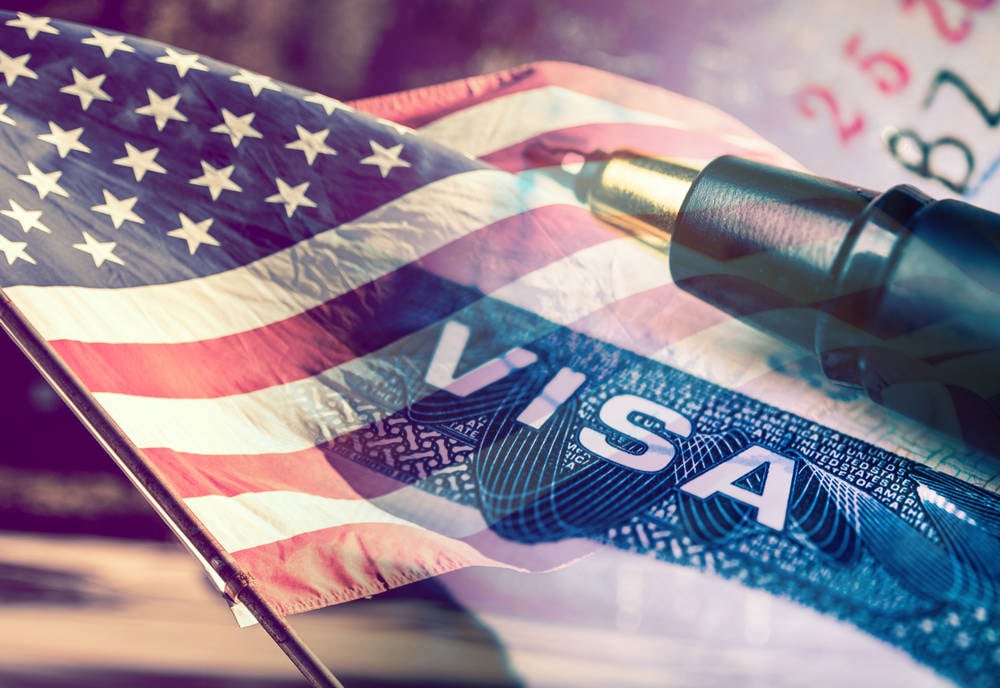Shocking No One, Not Enough Foreigners Applied For H-1B Visas This Year So US Govt Ran A Second Lottery

Too few H-1B hopefuls applied for employment visas this year that the US government has held an unprecedented second lottery to reach its annual quota.
By April, a record-breaking 275,000 people entered this year's H-1B lottery, hoping to be selected to apply for the highly prized visa, which allows people in tech and other specialist roles to live and work in the United States.
However, not enough of those selected followed through with their applications, one way or another, to meet Uncle Sam's annual cap of 85,000 new H-1B visas. And so a second lottery was held by the United States Citizenship and Immigration Services (USCIS) on August 11, Bloomberg Law and Law360 reported earlier today. Those picked will have from next week until mid-November to file their petition paperwork to complete their application process.
"Recently, USCIS determined that additional registrations needed to be selected to reach the numerical allocations," a USCIS spokesperson told The Register. "A selection of previously submitted electronic registrations was completed on August 11.
"The petition filing period based on registrations selected on August 11 will begin on August 17 and close on November 16. Those with selected registrations will have their myUSCIS accounts updated to include a selection notice, which includes details of when and where to file."
USCIS determined that additional registrations needed to be selected to reach the numerical allocations
This sort of shortfall is unheard of: the H-1B visa system is usually maxed out. Perhaps America's bungled response to the coronavirus pandemic, and the ensuing travel restrictions, put off applicants. Or those selected could not file their petitions because their paperwork must specify the company they will work for in the US and their specific role, and amid the economic uncertainty, those positions were scrapped, ending their H-1B journeys.
Or perhaps because President Trump threw the H-1B system into doubt late June by banning new visa holders from entering the country until the end of the year, plus or minus some caveats. Those selected in the first lottery were due to start work in the States from October, if their petitions were successful.
Meanwhile, earlier this week, the US State Department broadened the national interest exceptions that can be used to bypass Trump's entry ban. Also, Forbes reported US consular officers in Europe are denying O-1 visas, reserved for foreigners with exceptional abilities, purportedly to prevent the spread of the COVID-19 coronavirus. ®
From Chip War To Cloud War: The Next Frontier In Global Tech Competition
The global chip war, characterized by intense competition among nations and corporations for supremacy in semiconductor ... Read more
The High Stakes Of Tech Regulation: Security Risks And Market Dynamics
The influence of tech giants in the global economy continues to grow, raising crucial questions about how to balance sec... Read more
The Tyranny Of Instagram Interiors: Why It's Time To Break Free From Algorithm-Driven Aesthetics
Instagram has become a dominant force in shaping interior design trends, offering a seemingly endless stream of inspirat... Read more
The Data Crunch In AI: Strategies For Sustainability
Exploring solutions to the imminent exhaustion of internet data for AI training.As the artificial intelligence (AI) indu... Read more
Google Abandons Four-Year Effort To Remove Cookies From Chrome Browser
After four years of dedicated effort, Google has decided to abandon its plan to remove third-party cookies from its Chro... Read more
LinkedIn Embraces AI And Gamification To Drive User Engagement And Revenue
In an effort to tackle slowing revenue growth and enhance user engagement, LinkedIn is turning to artificial intelligenc... Read more

